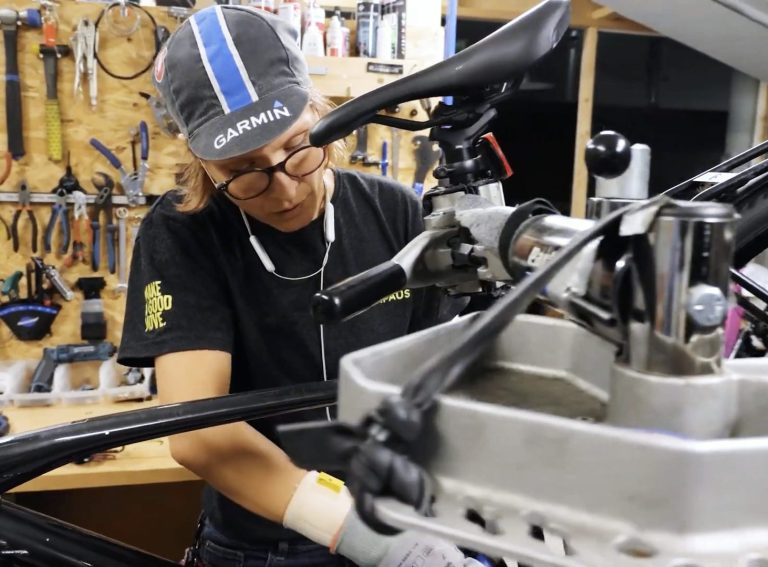Before the arrival of Leeds City Bikes, the English city of Leeds had never seen a shared micromobility system.
But now, after six months of city centre operation, the scheme has doubled in size. The fully electric service has expanded with twice as many parking bays, a larger service area and 200 more e-bikes.
Operated by Beryl in partnership with Leeds City Council and the West Yorkshire Combined Authority, the £2.86 million scheme was delivered thanks to funding secured through the West Yorkshire Mayoral devolution deal.
“Leeds is one of the biggest European cities without a mass transit system,” Beryl CEO Phil Ellis tells Zag Daily. “Our bike share scheme is potentially going to encourage a lot more people to ditch their cars.
“Whether citizens are going to work, going shopping, or going to see their friends, we can be the public transit solution that Leeds is looking for.”
Service to the suburbs
With a bigger fleet comes increased accessibility.
Beryl is moving beyond the city centre into residential and more student-occupied areas. The goal is to encourage more end-to-end journeys throughout the city, where riders can travel from one suburban area to another all on one e-bike, while also boosting the local economy.
“You don’t just see journeys happening in and out of the city centre but rather people are popping to the local high street or the outlying business district or retail area.
“It’s a network system of unpredictable journeys taking place across the whole region, rather than just in and out, in and out.”
To incentivise uptake, Beryl has launched a 50 Minute Bundle offer which waives the unlock fee and lets riders use the time in increments over a 12 month period. This adds further flexibility to riding patterns while making sustainable transport more cost-effective across the city.
Cost and convenience are what Beryl riders want after all. In the operator’s Annual Report for 2023, 96% of riders said convenience and 92% said cost was either somewhat important or very important to them when using e-bikes.
A shared mobility “greenfield”
Phil says that micromobility greenfields are the perfect rebuttal to the argument that shared mobility is declining.
A shared mobility greenfield is a city that hasn’t had a shared transport system in place before.
“Leeds is a great example of how greenfield sites can really be improved by a new shared micromobility system,” he says.
Since launching Leeds City Bikes on a ‘trial’ basis in the city centre, the fully electric scheme has had more than 8,000 riders sign up who have ridden more than 59,000 kilometres. This unofficial trial was designed to encourage people to give Beryl bikes a go within confined city areas before rolling out to suburban areas.
The trial was launched during the winter months, a time when ridership traditionally lowers due to the weather conditions. However, the arrival of spring and longer days should see the expanded scheme really start to take off over the coming months, with further expansion to come in the summer.
“But the benefit of launching then is that we’ve built our experience within the operational team under controlled conditions. Now is the true test of ridership.”
Phil says that micromobility is more than just delivering sustainable journeys when it comes to greenfield sites.
“What shared micromobility is doing is establishing a new behaviour. It’s establishing a behaviour of using shared assets, of cycling, of scooter riding, all in a healthy and enjoyable way.
“That has a really strong benefit. By virtue of the fact that Leeds hasn’t had a shared scheme in the past, establishing those shared behaviours is all part of giving one to them. It means that we have to work harder to initially establish the scheme.”
A greenfield city also means that patterns are harder to identify, and Beryl is still in the early stages of capturing them for Leeds. But though cycling behaviour may differ across cities, Phil believes that there’s one underlying constant.
“It’s a cliche, but the data does say that an e-bike will attract a broader range of demographics to the scheme. You get a range of age and protected characteristic demographics using the bikes.”
The expansion across Leeds will only rein riders in even more, and Beryl can confidently anticipate the outcome after its recent successes across the country.
“If you look at Norwich we’ve pretty much covered the whole city. Bournemouth, Christchurch and Poole – we cover the whole city. Plymouth, Brighton – we cover the whole city.
“Expansion across the entire city is our standard approach. So when you add that to the fact that Leeds doesn’t have a mass transit system, this is why the scheme could be a total gamechanger.”





